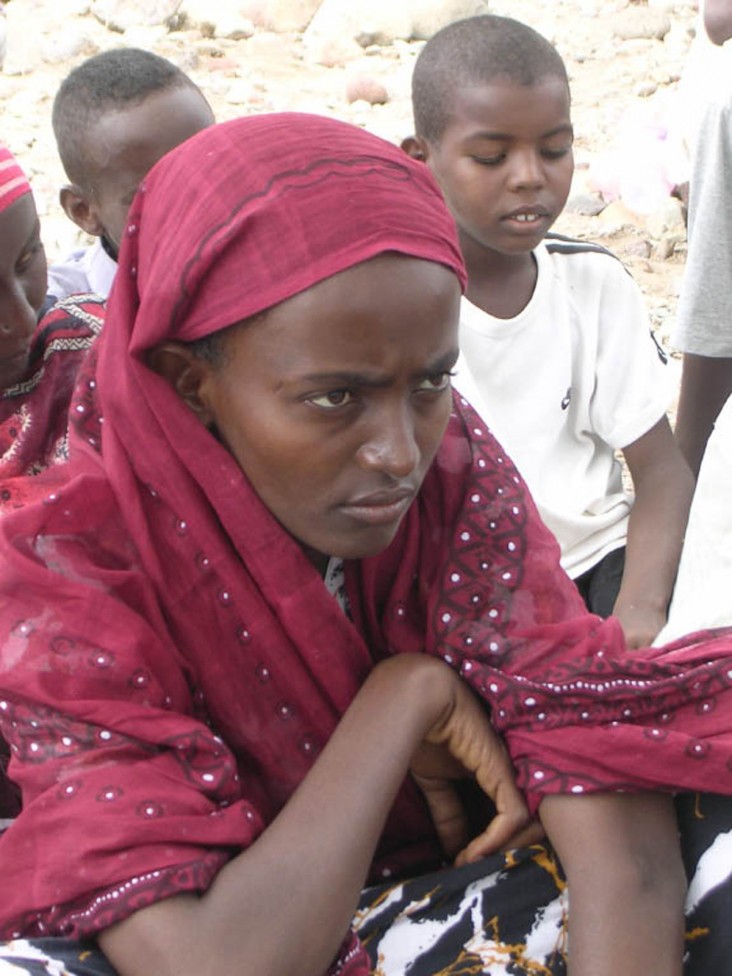
Selected by her community to promote prevention of common illnesses and increased use of health services, Saida serves a community of several hundred people including scattered encampments of traditionally nomadic families. As part of a recently completed and extremely successful USAID program, community mobilization took place across all the rural districts of Djibouti for the first time.
For community health workers like Saida, this is an opportunity to be a community resource—besides improving their own knowledge and health practices, they are outreach workers that assist clinic-based nurses to link those in need to available services. Women rarely play visible, public roles in rural Djiboutian society. However, because women will not speak to men about health issues, the predominantly male nurses working in the countryside are often unable to serve their patients. Women like Saida are overcoming traditional beliefs about sickness and prevention—and their role in the community—while helping women access health services and prevent illness at home.
The USAID program aims to provide rural residents with better access to quality health services. The goal is to reduce morbidity and mortality rates among women and children, and promote full community participation in health services delivery. USAID worked with the community to organize and train the village health committee to select and train health workers like Saida, and to update the trainings for nurses in the health centers.
Saida speaks with confidence about her role in the recent polio eradication campaign as an educator and motivator. She worries about the high level of anemia in women, which she recognizes now from common physical symptoms, and the common bouts of diarrhea among young children, and she hopes to help change things.
“Before I was an organizer, I wasn’t sure what to do,” Saida says. “Now I know—even though the work is hard sometimes, I like it and will keep doing it.”
The impact of health workers like Saida was one of many impressive results of USAID’s five-year maternal and child health program in Djibouti. Over that period, immunization rates tripled, child mortality decreased by 27% and four out of five births now take place in health facilities, as opposed to one out of five when the program began. Women like Saida helped make that progress possible.







Comment
Make a general inquiry or suggest an improvement.